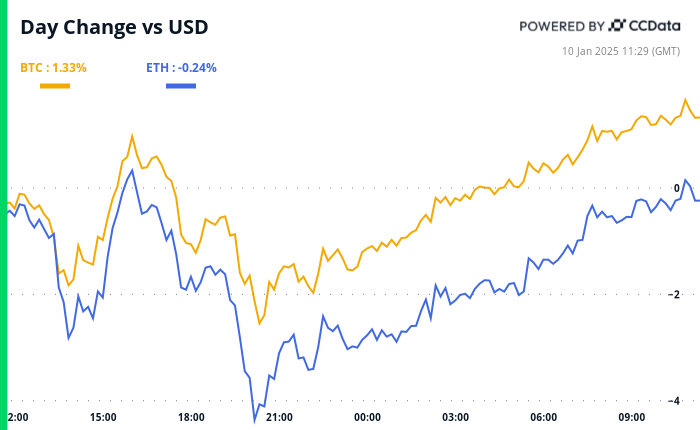Presented by Xsolla
In the end, funding is what makes or breaks your indie game project. In this VB Live event you’ll learn from leading industry pros how to find and win investors, alternative sources of support and more. The money is out there — register now to learn how to find it.
2021 was a record year for game industry investing, with game deals topping $85 billion across 1,159 announced or closed deals. This year has already surpassed that record, with more than $107 billion worth of total investment deals in the first six months of 2022 alone.
But as money pours in from all sides — from players, esports viewers, individual investors, mergers and acquisitions, growth funds and more — it’s still hard for indie games to get noticed and get the support they need in an increasingly competitive market, says Owen O’Donoghue, co-founder and CRO of InfiniGods. That’s especially true as interest in Web3 innovations accelerate.
“My sense is that in the coming year, VCs are going to become more conservative in terms of what they invest in,” he explains. “Growth funds will look more and more for real traction from any companies they plan to invest in. It may not mean less funds investing, but they’re less likely to take a risk on a pure idea.”
Why investors want a solid team
In the mobile game space, VCs are going deeper into practical considerations, and want to see more progress, including a minimum viable product, user engagement, proven monetization, potential to scale and more. However, the strength of the development team is becoming increasingly central to a company’s pitch.
Investors are looking for experience in the industry, such as whether they’ve been able to scale a business (especially if it’s a game company), and their success in hiring teams in the past. They want to know that team members have not only been able to successfully ship a product, but keep on top of updates, fixes, bugs, and player feedback, and are able to optimize. Investors expect that a game and business plan will change over time, particularly in web3, but they do want to be able to invest in the right team to ride that wave. While the idea still remains paramount, they’re also looking more closely at the team’s ability to pivot based on changes in the market, or as new metrics come in once the game is live.
“Investors are more likely to say, this team has done this several times with bigger companies or through similar startups, and have had a level of success, a level of learning,” he says. “They’re happy to back that team even if they believe the idea may change over time, because they believe the team will be able to evolve and adapt, given their track record.”
For instance, as O’Donoghue and his partners met with investors for InfiniGods, they leaned heavily on their experience as individuals, he says: the company’s co-founder bootstrapped and scaled a company to nine figures within the mobile gaming space, while O’Donohue himself has helped multiple companies scale and monetize through Facebook.
“We had some investors say, this is a real team play, when they were indicating their interest in investing, and others said, there’s a capability within this team — we know the industry will change here, and we believe this team can adapt to it,” he explains. ” Focus on your unique differentiator as a team, in your capabilities. That may not be about the game. It may be your ability to excel at user acquisition or live operations or game analytics.”
Teams are still key for Web 3 investors
Now with blockchain technology gaining traction, investors are regularly pouring money into crypto games. Blockchain gaming companies saw $2.5 billion in investments in Q1 of 2022 alone — and analysts predict this figure might grow to $10 billion by the end of the year. Blockchain game companies are regularly raising $3 million+ rounds based on their ambitious plans to not only make a game, but create a platform or an innovative tokenomics loop.
Investors are continuing to pour money into the infrastructure side; for instance, Thirdweb, which provides NFTs as a service, recently raised $24 million, some of that from Shopify, in a third round of funding. On the gaming side, VCs are beginning to move away from those web3 games focused predominantly on a tokenomics loop, since many of those pay-to-earn loops they invested in have proven difficult to scale.
Even in web 3, investors are going back to the fundamentals. They’re not interested in complicated tokenomics pay-to-earn models, but want to see team experience, an understanding of the genre the developers are aiming for, and why a web 3 version will be as good, or preferably better than the comparable mobile or web 2 games that came before it. They want to see an acquisition strategy, a monetization strategy beyond just NFT mints, and a live operations strategy.
“VCs are not taking the risks they were before, on teams with very limited gaming experience but backgrounds in crypto and financial products,” he says. “We’re leaving that phase of backing every project that has ‘metaverse’ or ‘blockchain’ attached to it. Let’s talk about how you get one million players in your game, realistically. Because we know not everybody will be play-to-earn.”
For more insight into how VC interest is changing in a Web3 world, a deep dive into how O’Donoghue and his team found funding for InfiGods, best practices and good advice for landing a meeting and nailing a pitch, don’t miss this VB Live event!
Agenda
- Pitching basics from crafting to delivery
- What kind of investor is best
- How to find and convince the right investor
- Where to find alternative sources of funding
- And more!
Presenters
- Owen O’Donoghue, Co-Founder & CRO, InfiniGods
- Lawrence Mien, Director of Partner Experience, Xsolla
- Nathan Sölbrandt, Business Development Manager Europe – Funding, Xsolla
- Dean Takahashi, Lead Writer, GamesBeat (moderator)
Read More: venturebeat.com









 Bitcoin
Bitcoin  Ethereum
Ethereum  Tether
Tether  XRP
XRP  Solana
Solana  Dogecoin
Dogecoin  USDC
USDC  Cardano
Cardano  Lido Staked Ether
Lido Staked Ether  TRON
TRON  Avalanche
Avalanche  Sui
Sui  Wrapped stETH
Wrapped stETH  Toncoin
Toncoin  Chainlink
Chainlink  Shiba Inu
Shiba Inu  Wrapped Bitcoin
Wrapped Bitcoin  Stellar
Stellar  Hedera
Hedera  Polkadot
Polkadot  WETH
WETH  Bitcoin Cash
Bitcoin Cash  LEO Token
LEO Token  Litecoin
Litecoin  Uniswap
Uniswap  Pepe
Pepe  Hyperliquid
Hyperliquid  Wrapped eETH
Wrapped eETH  NEAR Protocol
NEAR Protocol  USDS
USDS  Ethena USDe
Ethena USDe  Aptos
Aptos  Internet Computer
Internet Computer  Aave
Aave  Mantle
Mantle  Cronos
Cronos  POL (ex-MATIC)
POL (ex-MATIC)  Ethereum Classic
Ethereum Classic  MANTRA
MANTRA  Render
Render  Monero
Monero  Bittensor
Bittensor  Dai
Dai  Artificial Superintelligence Alliance
Artificial Superintelligence Alliance  Tokenize Xchange
Tokenize Xchange  Filecoin
Filecoin  Arbitrum
Arbitrum